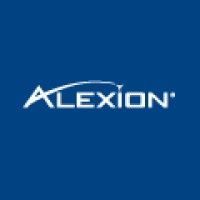预约演示
更新于:2025-05-07
HS
更新于:2025-05-07
基本信息
别名 类肝素硫酸盐 |
简介- |
关联
7
项与 HS 相关的药物靶点 |
作用机制 硫酸乙酰肝素硫酸酯酶替代物 |
在研机构 |
原研机构 |
在研适应症 |
非在研适应症- |
最高研发阶段临床前 |
首次获批国家/地区- |
首次获批日期1800-01-20 |
靶点 |
作用机制 硫酸乙酰肝素硫酸酯酶替代物 |
在研机构 |
原研机构 |
在研适应症 |
非在研适应症- |
最高研发阶段临床前 |
首次获批国家/地区- |
首次获批日期1800-01-20 |
作用机制 硫酸乙酰肝素硫酸酯酶替代物 [+1] |
在研机构 |
原研机构 |
在研适应症 |
非在研适应症- |
最高研发阶段临床前 |
首次获批国家/地区- |
首次获批日期1800-01-20 |
8
项与 HS 相关的临床试验NCT04655911
A Long-term Follow-up Study of Patients With MPS IIIB From Gene Therapy Clinical Trials Involving the Administration of ABO-101 (rAAV9.CMV.hNAGLU)
This is a multicenter, non-interventional, long-term follow-up (LTFU) study in participants who have been treated with ABO-101 in a prior trial. Eligible participants will undergo clinical evaluations at prespecified intervals for 3 years from the last visit in the prior clinical trial (up to 5 years post-treatment).
开始日期2020-10-28 |
申办/合作机构 |
NCT03315182
Phase I/II Gene Transfer Clinical Trial of rAAV9.CMV.hNAGLU for Mucopolysaccharidosis (MPS) IIIB
Open-label, dose-escalation clinical trial of rAAV9.CMV.hNAGLU injected intravenously through a peripheral limb vein
开始日期2017-10-16 |
申办/合作机构 |
EUCTR2015-000753-20-NL
A PHASE I/II OPEN LABEL STUDY IN MPS IIIB SUBJECTS TO INVESTIGATE THE SAFETY, BIODISTRIBUTION, PHARMACOKINETICS, AND PHARMACODYNAMICS/EFFICACY OF SBC-103 ADMINISTERED INTRAVENOUSLY
开始日期2016-08-16 |
100 项与 HS 相关的临床结果
登录后查看更多信息
100 项与 HS 相关的转化医学
登录后查看更多信息
0 项与 HS 相关的专利(医药)
登录后查看更多信息
6,291
项与 HS 相关的文献(医药)2025-12-31·Cancer Biology & Therapy
Sulfatase 2 inhibition sensitizes triple-negative breast cancer cells to paclitaxel through augmentation of extracellular ATP
Article
作者: Yue, Yu ; Marcho, Lynn M. ; Mittra, Arjun ; Manouchehri, Jasmine M. ; Cherian, Mathew A. ; Datta, Jharna ; Schnell, Patrick M. ; Zhang, Xiaoli ; Ganju, Ramesh K. ; Stover, Daniel ; Ramaswamy, Bhuvaneswari ; Carson, William E. ; Rubinstein, Mark P.
2025-12-31·Virulence
Dual roles of exostosin glycosyltransferase 1 in Zika virus infection
Article
作者: Maccarana, Marco ; Khan, Asifa ; Li, Jinlin ; Lundkvist, Åke ; Ling, Jiaxin ; Li, Jin-Ping ; Denkewitz, Matthias
2025-06-01·Carbohydrate Polymers
Rationally designed chemoenzymatic synthesis of heparan sulfate oligosaccharides with neutralizable anticoagulant activity and low severe complications
Article
作者: Qiu, Yaqi ; Liu, Aohui ; Zhang, Guijiao ; Wang, Fengshan ; Wang, Lin ; Ma, Yaqing ; Cui, Linhan ; Liu, Chunhui ; Liu, Qinyu
594
项与 HS 相关的新闻(医药)2025-05-03
点上方蓝字“ioncology”关注我们,然后点右上角“…”菜单,选择“设为星标”ELCC 2025 微专辑扫描二维码可查看更多内容在2025欧洲肺癌大会(ELCC)上,北爱沙尼亚医疗中心肿瘤内科医生、欧洲肿瘤内科学会(EORTC)肺癌组成员、欧洲肿瘤内科学会(ESMO)科学委员会成员Kersti Oselin作报告《小细胞肺癌的新型疗法和靶向治疗通路》,并接受《肿瘤瞭望》现场专访。Kersti Oselin教授在报告中总结了小细胞肺癌(SCLC)治疗的最新进展,聚焦新型治疗策略与靶点,指出抗体药物偶联物(ADC)、T细胞激活疗法(如BiTE、TriTAC)和抗血管生成药物(VEGF抑制剂)是有望进入临床的疗法。ADC药物的临床试验数据TROP-2靶向:TROPiCS-03试验中,戈沙妥珠单抗(sacituzumab govitecan,SG)二线治疗广泛期小细胞肺癌(ES-SCLC)的客观缓解率(ORR)为41.9%,中位总生存(OS)达13.6个月(WCLC2024,OA04.04)。中国学者研究的TROP-2靶向ADC药物SHR-A1921也在既往经治ES-SCLC患者中显示出令人鼓舞的疗效,中位随访时间5.3个月时,在15例可评估肿瘤反应的患者中,ORR为 33.3%,中位缓解持续时间(DoR)为 4.4 个月。在所有患者中,中位无进展生存(PFS)为 3.8 个月(WCLC 2024, OA04.05)。B7-H3靶向:II期IDeate-Lung01试验中期分析显示,在12mg/kg和8mg/kg剂量组中,ifinatamab deruxtecan(I-DXd)治疗复发性转移性ES-SCLC患者的ORR分别为54.8%和26.1%,中位OS分别为11.8个月和9.4个月(WCLC 2024,OA04.03)。在I期ARTEMIS-001研究中,靶向B7-H3的ADC药物HS-20093采用8.0mg/kg剂量的ORR为61.3%,采用10.0mg/kg剂量的中位PFS为7.3个月(WCLC 2024,OA04.06)。SEZ6靶向:I期首次人体研究显示,ABBV-011用于复发/难治性SCLC患者在1mg/kg剂量扩增阶段(n=40)的ORR为25%(Morgensztern et al. Clin Cancer Res 2024;30:5042–52)。经治广泛期小细胞肺癌的ADC治疗数据挑战:当前研究多为小样本、非对照试验,缺乏可以筛选患者的生物标志物,未能明确靶点表达水平与疗效的关联。T细胞激活疗法(DLL3靶向)Delta样配体3(DLL3)是一种在小细胞肺癌中高表达的蛋白质,是T细胞介导最有前景的靶点。Rovalpituzumab tesirine(Rova-T)是最早进入临床的DLL3靶向药物,这种ADC的临床研发已终止。其他靶向DLL3的新型药物包括双特异性T细胞接合剂(BiTE)和三特异性T细胞活化蛋白构建体(Tri-Tac)。DLL3也是CAR-T细胞治疗的主要靶点。BiTE药物:Tarlatamab是一种靶向SCLC细胞上DLL3的BiTE药物。Ib期DeLLphi-303研究中,Tarlatamab联合PD-L1抑制剂作为ES-SCLC一线维持治疗的中位PFS为5.6个月,9个月OS率88.9%(WCLC 2024, OA10.04)。Obrixtamig(BI764532)是另一款靶向DLL3的BiTE药物,目前处于临床开发阶段。TriTAC药物:目前在SCLC治疗展现前景的药物包括HPN328(MK-6070)等。小结:多种靶向DLL3的BiTE疗法正在临床开发中。细胞因子释放综合征是50%患者的主要治疗相关不良事件(TRAE),大多为1-2级且可控。抗血管生成治疗(VEGF抑制剂)III期BEAT-SC试验中,化疗+阿替利珠单抗基础上加用贝伐珠单抗未显著改善ES-SCLC患者的OS(Ohe Y, et al. J Clin Oncol 2024;42(suppl):Abstr 8001)。III期ETER701试验中,安罗替尼+贝莫苏拜单抗(PD-L1单抗)+依托泊苷/卡铂(EC)一线治疗ES-SCLC的中位OS达19.3个月,相比对照组(安慰剂+依托泊苷/卡铂)延长了7.4个月,显著降低死亡风险39%(Cheng Y et al. Nature Medicine 2024;2967)。Ib期试验结果显示,依沃西单抗联合EC化疗一线治疗ES-SCLC的ORR为80%(JTO February 2025, P233-239)。总结ES-SCLC一线维持治疗:EP化疗+PD-(L)1抑制剂+研究药物方案展现前景,在ETER701试验中,安罗替尼+贝莫苏拜单抗的中位OS达19.3个月;经治ES-SCLC:Tarlatamab基于II期非对照DeLLphi-301试验结果已获FDA批准,中位OS为17.5个月;经治复发/难治ES-SCLC:小型非对照I-II期研究中,新型药物的ORR为30%-60%,中位PFS为4-7个月(靶点为TROP2、B3-H7、SEZ6、DLL3)。哪些新型药物和疗法在小细胞肺癌治疗中最有前景,有望进入临床治疗?Dr. Oselin:我们对小细胞肺癌的研究进展感到兴奋。在历经诸多治疗失败后,我们终于看到了隧道尽头的曙光。在我的报告中,我重点梳理了去年及今年初发表的研究结果和演讲报告。我讨论的主要治疗类别是抗体药物偶联物(ADCs)、各类T细胞活化机制以及血管内皮生长因子受体(VEGFR)相关疗法。当然,这三类疗法并非小细胞肺癌独有,在非小细胞肺癌领域也有相关研究,但两种疾病的靶点选择存在差异。 (上下滑动可查看)Dr. Oselin: I am Kersti Oselin. I am a medical oncologist from North Estonia Medical Center in Tallinn, Estonia. I have been a member of the EORTC Lung Cancer Group, and also a member of ESMO for over ten years. It is my great pleasure to be part of the ESMO Scientific Committee and to contribute to the European Lung Cancer Conference.I think everyone is a bit excited at the moment. After so many failures in the treatment of small cell lung cancer, there seems to be light at the end of the tunnel. In my presentation, I tried to focus on the latest publications and presentations from last year and earlier this year. I think the main therapeutic classes we are discussing are ADCs, various mechanisms of T-cell activation and maybe the VEGFRs. These are three main therapeutic classes. Of course, they are not unique to small cell lung cancer. We can talk about the same classes for non-small cell lung cancer, but for SCLC, we have slightly different targets.请谈一谈广泛期小细胞肺癌治疗的未来研究方向。Dr. Oselin:当ES-SCLC患者一线治疗进展后,疾病基因组的异质性会加剧,治疗难度也会更大。因此,如果必须做出选择,我认为ES-SCLC的未来治疗方向是强化一线治疗——无论是一线采用化疗-免疫联合治疗后接续免疫联合维持治疗,还是替换现有疗效欠佳的一线免疫方案。 为了显著改善疗效,我们必须聚焦一线治疗。铂类化疗的问题不在于患者对药物没有反应(多数患者反应良好),而在于复发后疾病性质改变,进而导致治疗难度加大。我将希望寄托于强化一线治疗方案以提升疗效。(上下滑动可查看)Dr. Oselin: Once patients have already progressed on first-line treatment, the disease is even more genomically heterogenous, and likely very difficult to treat. So, if I needed to choose, I think the way forward is to intensify first-line treatment, whether it is in combination with chemo-IO followed by IO combinations in the maintenance setting, or replacing the current already less effective IO upfront. To significantly improve outcomes, we need to focus on first-line. The problem with platinum-based chemotherapy is not that the patients don’t respond (the majority respond very well), but when they relapse, it is a different disease and more difficult to treat. I would rather put my hopes on intensifying and improving outcomes in the first-line setting.(来源:《肿瘤瞭望》编辑部)声 明凡署名原创的文章版权属《肿瘤瞭望》所有,欢迎分享、转载。本文仅供医疗卫生专业人士了解最新医药资讯参考使用,不代表本平台观点。该等信息不能以任何方式取代专业的医疗指导,也不应被视为诊疗建议,如果该信息被用于资讯以外的目的,本站及作者不承担相关责任。
抗体药物偶联物临床1期细胞疗法免疫疗法临床结果
2025-05-02
·翰森制药
2025年5月1日,翰森制药集团有限公司(以下简称“翰森制药”,03692.HK)宣布,公司自主研发的B4-H4靶向抗体-药物偶联物(ADC)注射用HS-20089获国家药品监督管理局(NMPA)批准纳入“突破性治疗药物”,拟定适应症为用于治疗铂耐药复发上皮性卵巢癌、输卵管癌或原发性腹膜癌患者。本次认定主要依据HS-20089-101研究的I期试验结果和HS-20089-201研究的Ⅱ期试验结果。HS-20089-101研究是一项多中心、开放标签的I期临床试验,评价注射用HS-20089在晚期实体瘤患者中的安全性、耐受性、药代动力学和有效性。HS-20089-201研究是一项多中心、开放标签的Ⅱ期临床试验,在复发性或转移性卵巢癌和子宫内膜癌患者中评价HS-20089静脉注射给药的有效性、安全性、药代动力学特征和免疫原性。HS-20089是一款B7-H4靶向ADC,其有效载荷为拓扑异构酶抑制剂(TOPOi),正于中国开展用于治疗卵巢癌以及其他妇科肿瘤的多项临床研究,其中最高研究阶段为临床Ⅲ期。2023年10月20日,翰森制药与GSK订立独家许可协议,授予GSK全球独占许可(不含中国内地、香港、澳门及台湾),以开发、生产及商业化HS-20089(GSK5733584),该产品目前正由GSK开展海外Ⅰ期临床试验。翰森制药现已布局多个进展靠前、具有差异化的ADC分子,并高效推进其临床开发及注册申请,以期早日为中国乃至全球患者带来更多突破性治疗选择。关于卵巢癌卵巢癌(OC)是最常见的妇科恶性肿瘤之一,2022年,全球约诊断出324,603例卵巢癌新病例,使其成为女性中第八大常见恶性肿瘤。该年约有206,956例卵巢癌死亡,卵巢癌成为女性癌症相关死亡的第八大原因。在中国,2022年卵巢癌的发病数为61,060例,死亡人数为32,646例[1] 。手术联合以铂为基础的化疗是目前卵巢癌的标准治疗方式,但绝大部分晚期患者会在3年内复发,并最终会对铂类化疗产生耐药性,铂耐药复发卵巢癌(PROC)的临床治疗手段和疗效均十分有限。根据近年来开展的Ⅲ期随机对照研究中的对照组(非铂单药化疗)数据显示,非铂单药化疗卵巢癌的客观缓解率(ORR)仅4%~15.9%,中位无进展生存期(mPFS)仅3.4~3.98个月。对于接受过1至2线治疗的患者,非铂化疗结合贝伐珠单抗的ORR为27.3%,mPFS延长至6.7个月,中位生存期(mOS)达到16.6个月。尽管PFS显著延长,但OS与非铂化疗相比无明显获益[2-6] 。目前该疾病仍存在巨大未被满足的临床需求,亟待寻找更为有效的治疗方式。关于突破性治疗药物根据《国家药品监督管理局关于发布突破性治疗药物审评工作程序(试行)等三个文件的公告》(2020年第82号),突破性治疗药物程序适用范围为——药物临床试验期间,用于防治严重危及生命或者严重影响生存质量的疾病,且尚无有效防治手段或者与现有治疗手段相比有足够证据表明具有明显临床优势的创新药等。针对纳入突破性治疗药物程序的药物,CDE优先配置资源进行沟通交流,加强指导并促进药物研发;并且经评估符合相关条件的,也可以在申请药品上市许可时提出附条件批准申请和优先审评审批申请。关于翰森制药翰森制药是中国领先的创新驱动型制药企业,以「持续创新,提高人类生命质量」为使命,重点关注抗肿瘤、抗感染、中枢神经系统、代谢及自身免疫等重大疾病治疗领域。截至目前,公司已上市7款创新药,形成了丰富的产品管线。翰森制药连续多年位居全球制药企业百强、中国医药研发产品线最佳工业企业前3强,是国家重点高新技术企业、国家技术创新示范企业。翰森制药于2019年6月在香港联交所挂牌上市(股票代码:03692.HK)。更多信息请访问:https://cn.hspharm.com/。参考文献:[1]International Agency for Research on Cancer. (2024). Cancer TODAY: GLOBOCAN 2022 (version 1.1). Retrieved April 26, 2025, from https://gco.iarc.who.int[2]Pujade-Lauraine E, Fujiwara K, Ledermann JA, et al. Lancet Oncol. Jul 2021;22(7):1034-1046. [3] Gaillard S, Oaknin A, Ray-Coquard I, et al. Gynecol Oncol. Nov 2021;163(2):237-245.[4]Hamanishi J, Takeshima N, Katsumata N, et al. J Clin Oncol. Nov 20 2021;39(33):3671-3681.[5]Pujade-Lauraine E, Hilpert F, Weber B, et al. [6]Moore KN, Angelergues A, Konecny GE, et al. N Engl J Med. Dec 7 2023;389(23):2162-2174.声明:1、本公告仅供医疗卫生专业人士参阅,非广告用途。2、翰森制药不推荐任何未获批药品使用和/或未获批适应症用药,亦不对任何药品和/或适应症作推荐。3、本公告中涉及的信息仅供参考,请遵从医生或其他医疗卫生专业人士的意见或指导。医疗卫生专业人士作出的任何与治疗有关的决定应根据患者的具体情况并遵照药品说明书。4、如需了解公司任何产品、医疗或疾病的相关信息,请务必咨询医疗卫生专业人士。前瞻性说明本新闻稿旨在提供关于翰森制药集团有限公司及其附属公司(包括其子公司,统称为“翰森制药”)的信息。它不构成对翰森制药或任何投资建议的信息披露。本新闻稿包含的信息可能包括与翰森制药业务和产品前景、计划、信念、预期和策略相关的前瞻性声明。这些声明是基于推测性假设的预测,并不保证未来的表现。它们受到诸如科学、商业、政治、经济、财务、法律因素以及竞争环境和社会条件等风险和不确定性的影响,这些因素很多都是翰森制药无法控制且难以预测的,因此实际结果可能与此处所述有显著差异,且过去的证券价格趋势不应作为未来行情的指导。因此,投资者在使用这些信息进行投资决策时应谨慎行事。“致力于”“预期”“相信”“预测”“意图”“预计”“可能”“将”“应该”“计划”“继续”“目标”“考虑”“估计”“指导”“潜在”“追求”以及于任何未来计划、行动或事件的讨论中使用的类似词语和术语,均表示前瞻性声明。翰森制药不承诺或保证前瞻性信息的准确性、及时性或完整性,并且不承担更新或修订这些前瞻性声明的义务。无论是翰森制药还是其任何董事、员工或代理人,均不对任何证明不准确或无法实现的前瞻性声明负责,也不对因依赖本新闻稿中提供的信息而产生的任何损失或损害负责,包括但不限于直接、偶然、间接或惩罚性的损害。END
突破性疗法抗体药物偶联物临床3期临床2期临床1期
2025-04-29
·今日头条
黑色素瘤是一种免疫原性高、突变负荷大且存在肿瘤间与肿瘤内异质性的癌症。尽管靶向治疗与检查点抑制剂的问世,一度为晚期黑色素瘤的治疗带来曙光,但居高不下的复发率,仍然让无数患者深陷困境。病情一旦进展,患者不仅要面对预后不佳的残酷现实,更陷入治疗手段匮乏的绝境。然而,正是黑色素瘤这种复杂而独特的免疫特性,成为了打破困局的关键突破口!基于 T 细胞的前沿疗法,如免疫检查点抑制剂、肿瘤浸润淋巴细胞疗法(TIL),在这片 “免疫战场” 上找到了治疗的可能和制胜的契机。
《美国癌症研究杂志》公布的重磅数据,无疑为抗癌征程注入一剂“强心针”!在针对 PD-1 抑制剂治疗后进展的晚期皮肤黑色素瘤患者中,非选择性自体 TIL 疗法创造了令人惊叹的战绩:疾病控制率高达 86%!这一数字不仅刷新了人们对黑色素瘤治疗的认知,更昭示着抗癌医学的重大突破 —— 曾经棘手的黑色素瘤难题,正被 TIL 疗法撕开一道希望的裂口,照亮无数患者重获新生的道路!
一、非选择性TIL疗法让晚期黑色素瘤患者持续缓解超7年,疾病控制率达86%
在黑色素瘤治疗领域,非选择性自体肿瘤浸润淋巴细胞(TIL)疗法以高度个性化优势成为创新典范。该疗法通过提取患者自身肿瘤反应性T细胞群,利用其中多样化的T细胞受体(TCR),精准锁定并攻击患者特异性肿瘤相关抗原及新抗原,为晚期皮肤黑色素瘤患者带来新希望。一项发表于《美国癌症研究杂志》的回顾性同情用药临床研究证实,非选择性TIL产品不仅可从消化处理后的肿瘤组织高效制备,更能为经检查点抑制剂或靶向治疗后病情进展的患者,开辟显著临床获益的新路径。
该研究纳入21例晚期皮肤黑色素瘤患者,中位年龄为45岁,均处于M1c或M1d期,超90%曾接受检查点抑制剂治疗,12例为PD-1抑制剂治疗后进展患者。所有患者顺利完成淋巴细胞清除化疗,其中4例使用冷冻保存的肿瘤消化液制备TIL。截至2019年12月31日,中位随访时间长达52.2个月(4.6-98.8个月),治疗数据堪称惊艳。
结果显示:所有患者的
客观缓解率(ORR)达67%,完全缓解率(CR)为19%,疾病控制率(DCR)高达86%
。所有接受治疗患者的
中位总生存期(OS)为21.3个月
(95%CI,6.8-无法估计),KM估计的
24个月总生存期(OS)率为48%
(95%CI,24-68)。
24%的患者实现TIL输注后超30个月的持续缓解,所有CR患者均维持无病生存。
▼所有接受治疗的患者(N=21)以及先前接受PD-1抑制剂治疗的患者亚组(n=12)的总生存率
▲图源“Am J Cancer Res”,版权归原作者所有,如无意中侵犯了知识产权,请联系我们删除
此外,既往接受PD-1抑制剂治疗的患者亚组中,
ORR为58%
(95%CI,28-85),其中
CR率为8%
(95%CI,0-38),
DCR为75%
(95%CI,43-95)。基线存在脑转移的7例患者,
ORR达71%
(29%CR);使用冻存肿瘤制备TIL的4例患者,
ORR达75%
(25%CR),展现出疗法强大的适应性。
值得关注的是,其中1例16岁的BRAF突变患者堪称奇迹:面对巨大病灶(病灶直径总和为103mm)、纵隔转移及脑转移,且对三种疗法耐药的绝境下,经TIL联合IL-2治疗后,
仅6周便显著减轻疾病负担,3个月实现部分缓解,60个月达成影像学完全缓解
(CR,详见下图)。截至数据截止,该
患者已持续CR超7年
(85个月),无需任何后续抗癌治疗,用生命的奇迹诠释了TIL疗法的无限潜力!
▲图源“Am J Cancer Res”,版权归原作者所有,如无意中侵犯了知识产权,请联系我们删除
二、中国TILs产品百家争鸣
除了上文提到的非选择性TIL细胞疗法外,我国紧随美国其后,多家生物公司相继布局TIL产品的研发,并在前期的临床研究中初见成效,目前多款产品已获批正式开展临床研究,这款救命的疗法对中国患者而言,终于不再是遥不可及的梦。下面全球肿瘤医生网小编汇总了其中的几款佼佼者,以供癌友们参考。
1、GC101:君赛生物
GC101是全球首个无需淋巴清除及IL-2输注的天然TIL细胞治疗产品,由君赛生物研发。2022年4月24日,获国家药品监督管理局(NMPA)的临床试验默示许可(受理号:CXSL2200070)。
GC101 TIL已展现出良好的疗效及安全性,入组患者中,有3例达到部分缓解(PR),2例获得完全缓解(CR),且CR持续时间分别>6个月、>8个月。
2、GC203:君赛生物
GC203 TIL细胞注射液是由君赛生物研发的另一款TIL细胞产品,它是全球首款基于非病毒载体而研发的TIL新药品种!2024年2月6日,国家药品监督管理局(NMPA)批准受理了该产品的临床新药试验(IND)申请。GC203延续了GC101的优势,即无需清淋治疗及IL-2治疗,患者可在普通病房完成治疗,预计将节省10万余元的配套临床费用。
GC203在治疗妇科肿瘤(如宫颈癌、子宫内膜癌、卵巢癌)方面,展现出了良好的疗效。GC203治疗后,19例可评估疗效的晚期癌症患者,肿瘤均出现明显缩小,客观缓解率(ORR)达到42.1%,疾病控制率(DCR)更是高达84.2%!
3、GT101:沙砾生物
2022年4月22日,由沙砾生物研发的GT101注射液,获国家药品监督管理局(NMPA)的临床试验默示许可(受理号:CXSL2200061),它是我国首个获批临床的TIL细胞产品!
GT101注射液在治疗黑色素瘤、非小细胞肺癌、宫颈癌等多款实体瘤领域,展现出了良好的效果。
4、GT201:沙砾生物
沙砾生物研发的第二款TIL产品-GT201,于2023年7月11日,获国家药品监督管理局(NMPA)的临床试验默示许可,这也是我国首款进入注册临床试验的基因编辑型TIL产品,适用于复发或转移性实体瘤。
5、C-TIL051:西比曼生物
西比曼生物研发的一款新型TIL产品——“C-TIL051”,新药IND申请于2022年10月,获美国FDA批准,用于PD-1抗体难治或复发性晚期非小细胞肺癌(NSCLC)的治疗。除了NSCLC外,该产品还适用于泛癌种实体瘤(如黑色素瘤、宫颈癌、头颈部鳞状细胞癌等)。
6、BST02:百吉生物
百吉生物研发的一款重磅TILs产品-BST02,Ⅰ/Ⅱ期临床试验申请于2023年10月26日,获美国食品药品监督管理局(FDA)批准,用于治疗各类肝癌。值得一提的是,BST02是全球首个进入临床阶段的治疗肝癌的TIL细胞产品。
7、ZLT-001:智瓴生物
智瓴生物自主研发的ZLT-001注射液,于2023年1月28日获NMPA的临床试验默示许可(受理号:CXSL2200552),它是华南地区首个获批临床的TIL产品,适用于晚期复发或转移性宫颈癌。
8、HV-101:天科雅生物
天科雅生物医药和杭州厚无生物医药公司联合研发的一款新型TIL产品,即“HV-101注射液”,于2023年1月29日获国家药品监督管理局(NMPA)的临床试验默示许可(受理号为:CXSL2200574),用于治疗晚期复发或转移性实体瘤。
9、HS-IT101:华赛伯曼
华赛伯曼公司研发的一款自体天然加强TIL产品——“HS-IT101注射液”,新药IND申请于2023年11月29日,获国家药品监督管理局(NMPA)批准(受理号:CXSL2300599),用于治疗晚期实体瘤。
10、LM103:蓝马医疗
“LM103注射液”是由苏州蓝马医疗技术有限公司研发的一款TIL产品,也是国内首个获临床许可,使用滋养细胞(Feeder)工艺的TIL产品。2023年7月13日,获NMPA临床试验默示许可,用于晚期实体瘤的治疗。
三、小编寄语
肿瘤浸润淋巴细胞(TIL)疗法自1988年首次应用于临床以来,已走过30余载的发展历程。相较于其他免疫细胞疗法,TIL疗法独具将患者自身肿瘤组织“变废为宝”的神奇功效,堪称实体瘤治疗领域当之无愧的抗癌黑科技。它既适用于早期癌症患者,可有效预防肿瘤的复发与转移;又能作为晚期患者的挽救性治疗手段,为癌症患者带来一线生机。
四、参考资料
[1]Pillai M,et.al.Clinical feasibility and treatment outcomes with nonselected autologous tumor-infiltrating lymphocyte therapy in patients with advanced cutaneous melanoma. Am J Cancer Res. 2022 Aug 15;12(8):3967-3984.
https://pmc-ncbi-nlm-nih-gov.libproxy1.nus.edu.sg/articles/PMC9441996/
本文为全球肿瘤医生网原创,未经授权严禁转载
细胞疗法免疫疗法临床结果
分析
对领域进行一次全面的分析。
登录
或

生物医药百科问答
全新生物医药AI Agent 覆盖科研全链路,让突破性发现快人一步
立即开始免费试用!
智慧芽新药情报库是智慧芽专为生命科学人士构建的基于AI的创新药情报平台,助您全方位提升您的研发与决策效率。
立即开始数据试用!
智慧芽新药库数据也通过智慧芽数据服务平台,以API或者数据包形式对外开放,助您更加充分利用智慧芽新药情报信息。
生物序列数据库
生物药研发创新
免费使用
化学结构数据库
小分子化药研发创新
免费使用



